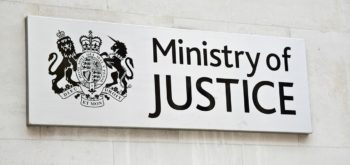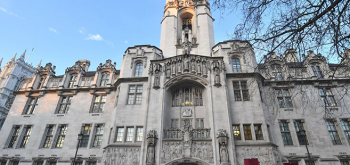The controversial legal aid Bill is back in the House of Lords this week, as the campaign against its planned £350m cuts are joined by faith leaders as well a wide-ranging collection of charities including Shelter, Netmums and the Women’s Institute. The Caritas Social Action Network, the umbrella network for Catholic care agencies, has written to the justice secretary Ken Clarke, warning that legal aid was ‘nothing short of essential for many victims of domestic abuse to escape the horrendous circumstances that they face’.
Meanwhile Lord David Alton in the Catholic newspaper The Universe today called the abolition of social welfare law and the reforms to welfare benefits as a ‘pincer movement’ against the poorest.
- The Caritas Social Action Network estimates that almost half of domestic abuse victims will no longer be able to access legal aid under the criteria imposed by the Legal Aid, Sentencing and Punishment of Offenders Bill (LASPO) Bill. Their letter is signed by 10 leading clerics; including the archbishop of Southwark, the Most Rev Peter Smith, the Anglican bishop of Leicester, the Rt Rev Timothy Stevens, and the heads of the Baptist Union, Methodist Conference, the Board of Deputies of British Jews, the Salvation Army, the Network of Sikh Organisations and others. Read more HERE.
The LASPO Bill heads back to the House of Lords for its final readings starting this week (March 5th, 7th, 12th and 14th) before returning to the House of Commons. The Coalition government plans to slash the £2.2bn legal aid budget by £350m. If the Bill goes on to the statute book in its current form, it will remove entire areas of laws from the legal aid scheme including ‘social welfare law’ which comprises advice on welfare benefits, employment, debt, housing advice (except where there is the threat of homelessness) and immigration. Ministers will also remove publicly funded legal advice for private family law (including advice on divorce, child custody, and child support) except where there is domestic violence.
- Ministers recently made some concessions around domestic violence and medical accidents – see HERE.
- The Bill has received a rough rude in the Lords, and you can read a list of peers opposing LASPO (prepared by the Law Society’s Sound off for Justice campaign).
Sharp-elbowed Britain
Ministers have repeatedly claimed that legal aid system in England and Wales is the most expensive in the world. It is a charge that has been continually countered by lawyers and the access to justice campaign.
‘Our legal system has grown to an extent that we spend more than almost anywhere else in the world. France spends £3 per head of population. Germany £5. New Zealand, with a comparable legal system, spends £8. In England and Wales we spend a staggering £38 per head of population.’ The justice secretary Ken Clarke, June 2011
Professor Alan Patterson from Strathclyde University takes issue with that view HERE. Further he argues that although the Scottish Legal Aid Board (SLAB) spends around £29 per capita (as opposed to £38 in England and Wales) ‘[what] is significant about this figure is that with a smaller per capita budget the Scottish system is more generous both in terms of scope’ – for example the Scottish scheme includes personal injury claims and some representation at employment tribunals. ‘Moreover, the Scots still have an uncapped, demand-led budget,’ he argues; adding that a significant factor is the lack of very high cost fraud cases north of the border.
Lord David Alton in the Catholic newspaper The Universe today talked about the scrapping of legal aid and the reforms to welfare benefits as a ‘pincer movement’ against the poorest. He noted that David Cameron has ‘consistently and rightly talked about the importance of responsible parenting to a child’s development’.
‘The government should be wary of emphasising responsible parenting on the one hand, while taking away the very mechanisms for securing families’ basic legal remedies on the other. That mechanism is legal aid which the magnificent Lord Bingham once remarked ‘is a service that the modern state owes to its citizens as a matter of principle’. Principal, though, along with access to justice, has become an early casualty in our sharp-elbowed Britain.’






